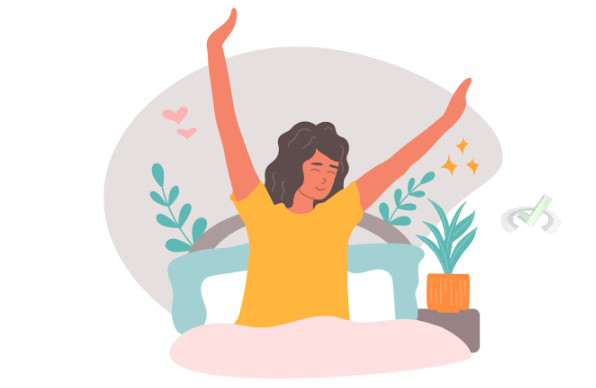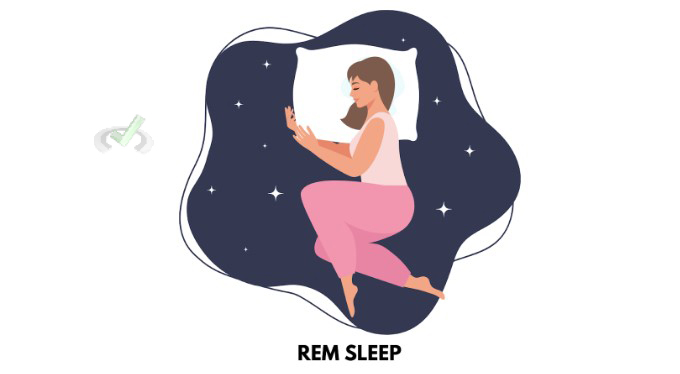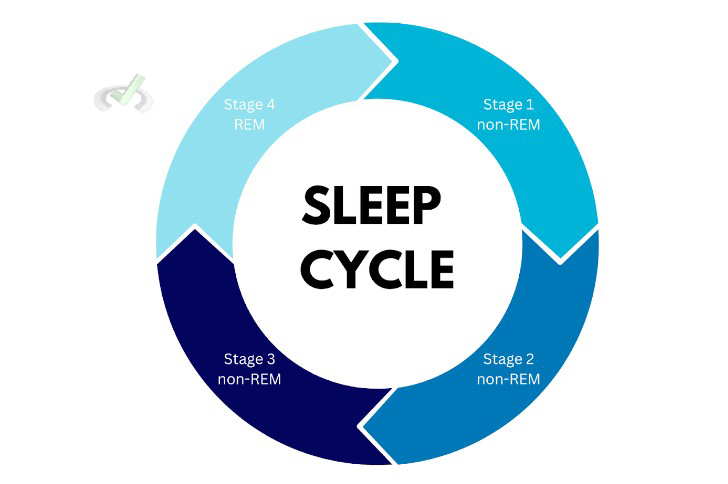Understanding states of consciousness is an important part of psychology. It includes studying how our awareness changes during wakefulness and sleep.
These changes affect our behavior and mental processes. In this guide, we'll explore these different states, how they impact us, and their importance in our daily lives.
I. Wakefulness: The State of Being Awake
Normal Wakefulness

When we are awake, our brains are active. We can think, talk, and respond to what’s around us. This state is necessary for learning, working, and interacting with others. It helps us stay alert and focused.
Altered States of Wakefulness
Sometimes, our level of wakefulness changes. This can happen due to various reasons:
- Fatigue: Being very tired can make concentrating and reacting quickly hard. It slows down our thinking and responses.
- Drug Influence: Substances like caffeine can make us more alert. Alcohol, on the other hand, can make us less aware and slower to react.
- Meditation: This practice can change our state of mind. It helps us relax and focus deeply, unlike normal wakefulness.
These changes show that being awake is not just one level. It can vary in how alert or focused we are.
II. Sleep: A Different State of Consciousness
Sleep is not just a time when we are inactive. It has different stages, each with specific activities happening in our brains and bodies.
The Stages of Sleep
Non-REM sleep has three different stages:
- Stage 1: This is the lightest stage of sleep. It’s easy to wake up from. We start to relax, and our eyes move slowly.
- Stage 2: This stage is a bit deeper. Our body temperature drops, and our heart rate slows. We spend most of our sleep time in this stage.
- Stage 3: This is the deepest sleep stage. It’s hard to wake up from this stage, during which our body repairs and grows.
REM Sleep

REM stands for Rapid Eye Movement. In this stage, our brains are very active, similar to when awake. Our eyes move quickly, and most of our dreaming happens here. REM sleep is very important for memory and learning. It helps us process what we learned during the day.
Sleep Cycles

A full sleep cycle lasts for about 90 minutes and includes both non-REM and REM sleep. We go through several cycles each night. This pattern helps us feel rested and ready for the next day.
III. The Role of Consciousness in Daily Life
Importance of Wakefulness
Being awake and alert is essential for doing daily tasks. It helps us think clearly, make decisions, and interact with others.
The Necessity of Sleep
Sleep is crucial for more than just resting. It helps our brains sort and store information. Without enough sleep, we can face problems like:
- Difficulty concentrating: It’s hard to focus and remember things.
- Mood swings: Lack of sleep can make a person irritable or anxious.
- Health issues: Not getting enough sleep leading to problems like high blood pressure and weakened immune systems over time.
IV. Bridge/Overlap
Consciousness is not just about being awake or asleep. It connects to many other areas in psychology and beyond.
Consciousness and Mental Health
Certain mental health issues can affect our consciousness:
- Insomnia: Difficulty falling or staying asleep.
- Narcolepsy: Sudden and uncontrollable episodes of deep sleep.
- Sleep Apnea: Breathing stops briefly during sleep, disrupting normal sleep patterns.
Consciousness and Brain Function
Different parts of the brain play roles in maintaining our state of consciousness:
- Prefrontal Cortex: Helps with decision-making and self-control.
- Limbic System: This system affects our emotions and memories. It plays a role in how we feel and react during different states of consciousness.
Consciousness and Learning
Our state of consciousness can affect how well we learn and remember information. For example, being well-rested improves concentration and memory, while sleep deprivation can hinder these abilities.
Cultural Perspectives on Consciousness
Cultures have unique ways of understanding and experiencing consciousness. Some emphasize meditation or mindfulness practices, while others may focus on rituals related to sleep and dreams.
V. Wrap Up/Key Terms
States of consciousness, including wakefulness and sleep, are important in our daily functioning and overall health. Understanding these states helps us appreciate the importance of proper sleep and alertness for learning, memory, and emotional well-being. By recognizing the factors that affect our consciousness, we can manage our mental and physical health better.
Key Terms
- Normal Wakefulness: Being awake and aware of our surroundings.
- Altered States: Different levels of awareness caused by factors like fatigue, drugs, or meditation.
- Non-REM Sleep: Includes stages from light to deep sleep, which is important for physical restoration.
- REM Sleep: Characterized by rapid eye movements and dreaming, which are crucial for memory and learning.
- Sleep Cycles: The repeating pattern of non-REM and REM sleep throughout the night.
- Consciousness and Mental Health: How mental health issues like insomnia and narcolepsy affect our awareness.
- Brain Function: The role of different brain areas in maintaining consciousness.
- Learning and Memory: How states of consciousness impact our ability to learn and remember.
VI. Practice
Sample Practice Question 1
Which of the following conditions might cause a person to feel unusually sleepy during the day despite a full night's sleep?
A. Insomnia
B. Narcolepsy
C. Sleep Apnea
D. Fatigue
Ans. C
Sleep apnea causes interruptions in breathing during sleep, which can prevent reaching deep and restful sleep stages. This leads to tiredness during the day, even after seemingly adequate sleep.
Sample Practice Question 2
What is a common effect of not getting enough non-REM sleep?
A. Increased dreaming
B. Difficulty in physical recovery
C. Enhanced creativity
D. Improved mood
Ans. B
Non-REM sleep, especially deep sleep, is vital for the body’s repair and recovery processes. Without enough non-REM sleep, physical recovery and overall health can suffer.







 To help you achieve your goal MCAT score, we take turns hosting these
To help you achieve your goal MCAT score, we take turns hosting these 





















 reviews on TrustPilot
reviews on TrustPilot